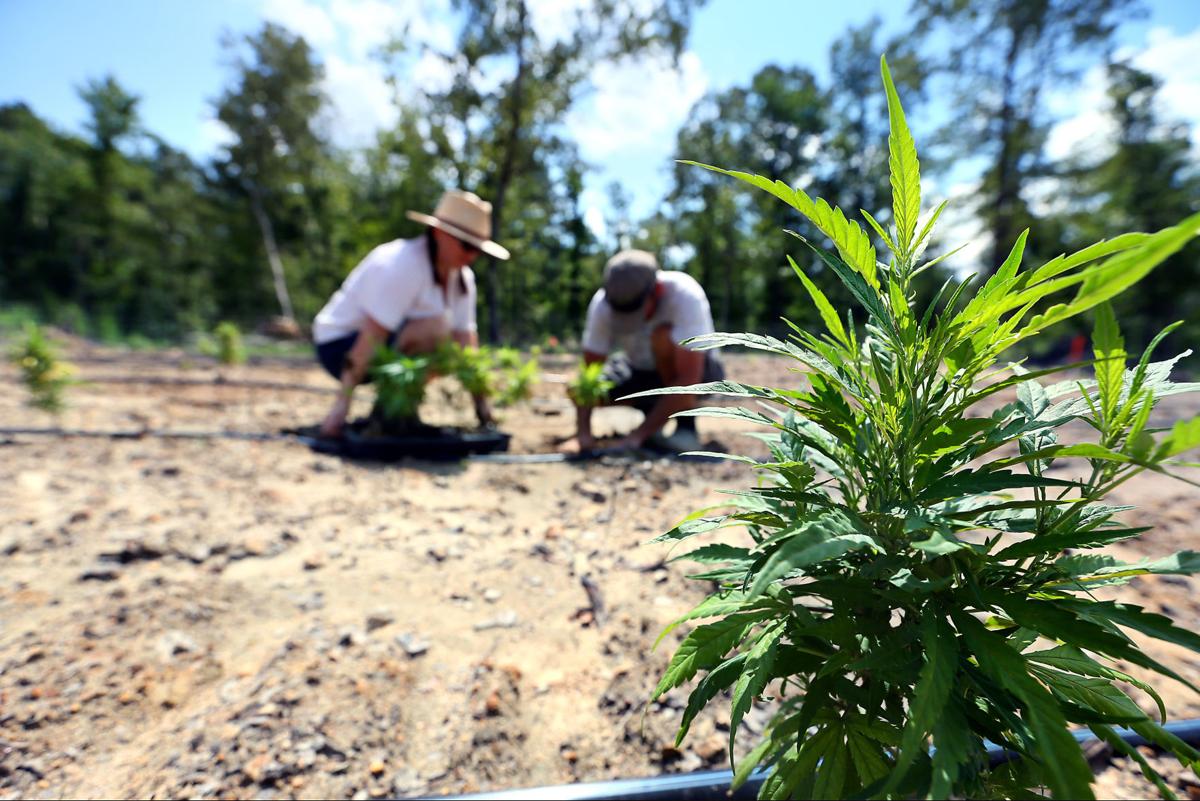Source: postandcourier.com

COLUMBIA — Being a farmer is hard enough. But imagine trying to figure out on the fly — without chemical fertilizers or pesticides — how to cultivate a crop not legally grown in South Carolina since World War II and bankrolling the experiment yourself with no ability to get insurance if it flops.
That's what it's like for farmers permitted to grow hemp in this inaugural year of South Carolina's pilot program.
The 20 permittees, selected in December from across the state to test different soils, are all doing it a little differently. They planted at different times, used different species, and tried growing with seeds, cuttings or some combination.
"It's kinda like dating. You've just got to figure it out. There's no rule book," said David Bulick, owner of Low Country Nursery in Awendaw who kept his plants in containers rather than transplanting hemp from greenhouses to fields like many other farmers.
His permit, like 18 others, allows for growing hemp to make cannabidiol, or CBD, a non-psychoactive oil that's used to treat a variety of ailments, from anxiety to arthritis to epileptic seizures. State legislators legalized the cannabis extract in 2014.
It's believed to be the only lucrative use of hemp for such small plots, as each permit allows farming a maximum of 20 acres.
But farmers hope their efforts pioneer a resurgence of an entire industry. Other uses of hemp include clothing and grain. But they require larger bulk production.
"It's really exciting to be on the forefront. It's an historic crop," said Harlow Tighe, an artist who returned to South Carolina after spending 20 years in Milan, Italy.
She and her business partner, Matt O'Brien of Southern Ecological Consultants, literally carved out 3 acres in Fairfield County from a 30-year-old timber stand. After spending months removing stumps and rocks, they began planting eight varieties in the ground in June. They intend to plant another 3 acres in Lexington County.
"We decided to start small — make our mistakes on a smaller scale," Tighe said.
Adding to their challenges were a tornado in March that took out a greenhouse they'd just built and a bad batch of compost that nearly killed many cuttings.
But O'Brien said the biggest challenge has been the misconception they're growing marijuana. Hemp varieties lack the tetrahydrocannabinols, or THC, of marijuana. Smoking it won't get someone high. But the resemblance helps explain why the federal government lumped hemp in with marijuana in banning all cannabis decades ago, despite encouraging its growth in a "Hemp for Victory" campaign during World War II.
"We’re constantly in fear of people looking at this stuff and thinking, 'Let's cut it all down.' They don’t know how expensive it was or how much sweat equity we put into planting each individual plant in the ground by hand," O'Brien said.
The two estimate they've worked 12-hour days at least six days a week for months. Next year, they might try mechanical seeding.
"We’ll obviously need several more years of trial and error to get it dialed in. At the end of the day it will work," said former Rep. Chip Limehouse, R-Charleston, who's farming land that he owns in Aiken County for hunting and horseback riding. "We're on the forefront of something great for South Carolina agriculture."
The possibilities for South Carolina's farmers hinge on whether the research shows the crop is economically feasible here, said David DeWitt, a Clemson Extension agent working with many of the permit holders.
The university is compiling costs to develop a budget for farmers' future calculations.
Planting hemp for cannabidiol is a particularly expensive venture for cannabis newbies. The plants are grown organically, without the aid of chemicals to get rid of pests such as armyworms. Each cutting can cost between $5 and $8. Even seeds cost $1 or more each.
"It can get to $10,000 an acre in a hurry. That's a lot for an experiment," DeWitt said.
Officials and farmers hope Congress passes the farm bill that's moving through the U.S. Senate, which would clear up the legal confusion about hemp, allowing for crop insurance and easier financing. The 2014 farm bill allowed states to legalize hemp on a pilot, research basis. States ahead of South Carolina include Kentucky and neighboring North Carolina.
South Carolina's pilot program, approved last year, doubles in round two. The state Department of Agriculture will award 40 permits for growing up to 40 acres each. Selections should be made by September. Inaugural farmers aren't guaranteed a 2019 permit. They had to reapply, adding to their uncertainties.
No comments:
Post a Comment